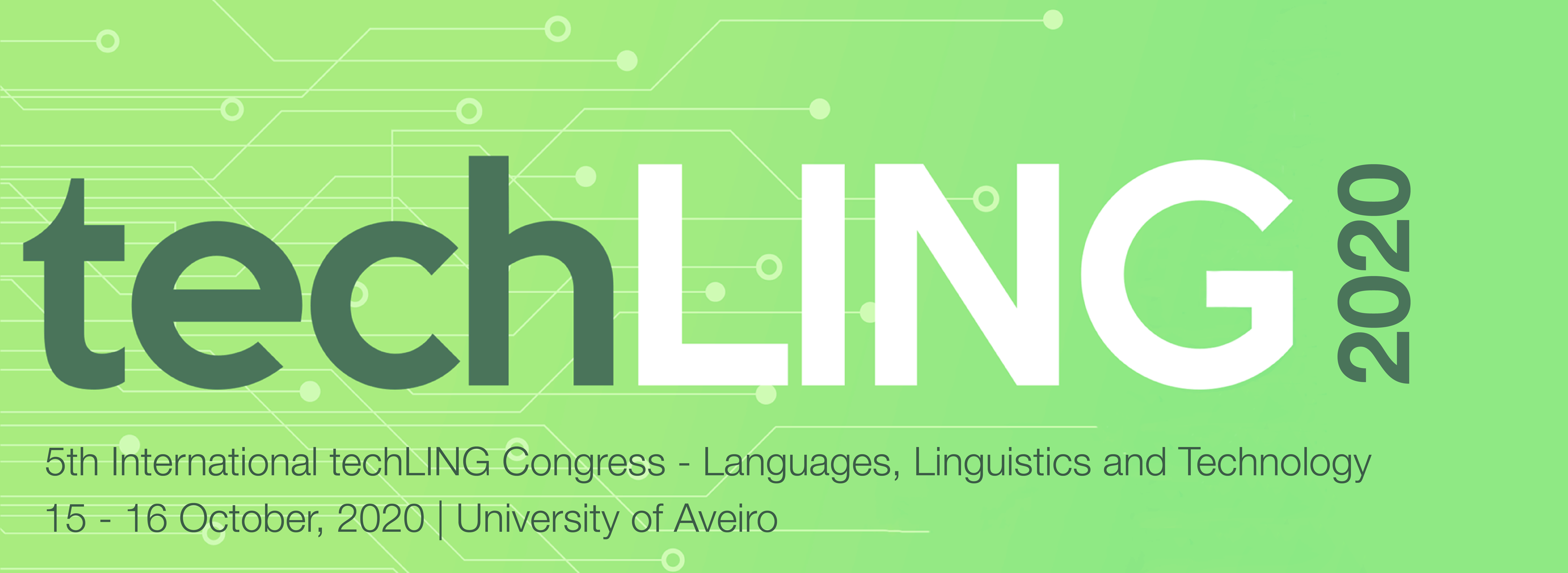TechLING is an international congress that aims to promote an effective dialogue between various representatives of areas of application of technology to languages. We seek to bring together work that reflect different academic and non-academic approaches to the study, use and commercialization of languages.
The conference includes four tracks. Submissions will be reviewed and assigned to different sessions in accordance to the track authors applied to. Topics of interest for submission include, but are not limited to:
Track 1: Research methodologies in the study of the relationship between digital technologies, languages and linguistics
Chair: António Pedro Costa, University of Aveiro - Portugal
Co-chair:
María Cruz Sánchez Gómez, University of Salamanca - Spain
Judita Kasperiūnienė, Vytautas Magnus University - Lituania
- Qualitative, Quantitative and Mixed Methods of Research
- Data Collection Techniques (Questionnaires, Interviews, Focus Groups, Observation, among others)
- Data Analysis techniques applied to the study of languages (Content analysis, Document analysis, Discourse analysis, Thematic analysis, Statistical data processing, among others)
- Literature Reviews (Meta-Analysis, Systematic Review, Integrative Review, Scoping Review, among others)
Track 2: Digital technologies and language education
Chair: Mónica Lourenço, University of Aveiro - Portugal
Co-chair: Ana Raquel Cabral, University of Aveiro - Portugal
- Language for specific purposes
- Language for academic purposes
- Intercultural communication
- Multi and plurilingualism
- Bibliodiversity
Track 3: Linguistics and technology in teaching-learning
Chair: António Moreno, University of Aveiro - Portugal
Co-chair: Abdelilah Suisse, University of Aveiro - Portugal
- Qualitative analysis of corpora
- Internet latent corpora
- Human / machine translation
- Text-to-speech / speech-to-text approaches
Track 4: Emerging technologies in linguistics and language teaching
Chair: Sandra Vasconcelos, ESTGA, University of Aveiro - Portugal
Co-chair: Manuel Moreira da Silva, ISCAP - Polytechnic Institute of Porto - Portugal
- Computational linguistics
- Artificial intelligence
- Immersive technologies in language teaching (virtual reality, serious games…)
Please note that the lists of subtopics under each main topic are intended as guidelines for submission, and hence are by no means exhaustive.
